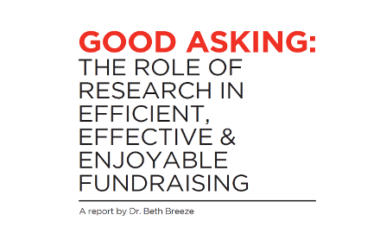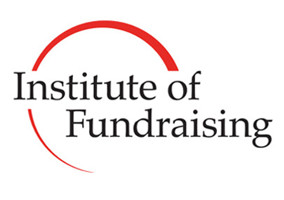Nearly 90 per cent of fundraisers surveyed for a new report believe that conducting research reduces the number of unwanted or irrelevant communications sent out to prospective donors.
The report entitled Good Asking: The role of research in efficient, effective and enjoyable fundraising was published today by the Institute of Fundraising and written by Beth Breeze, and looks at “why fundraisers do research” before making an ask of prospective donors.
Much of the report is based on data taken from an online survey conducted by Breeze with IoF members in February 2017. Of the 347 fundraiser respondents, 88 per cent agreed that “research reduces the number of unwanted or irrelevant communications sent to people who do not have the capacity to give at a particular level or do not have compelling connection to the cause”.
The survey also found that a similar number of respondents agreed that conducting research “helps fundraisers to understand who should be contacted because they are vulnerable, or because the charity would not wish to be associated with them”.
Breeze's survey also found that 90 per cent of respondents agreed that conducting research “enabled them to enhance the experience offered to donors”, while a further 89 per cent of respondents said research “enables them to produce communications that are tailored to suit the interests and needs of individual donors” better.
The research also found that 94.5 per cent of respondents had “undertaken or commissioned prospect research” as part of their fundraising, while 88 per cent had “undertaken or commissioned wealth screening” activities.
'Research allows fundraisers to understand people'
Beth Breeze, director of the Centre for Philanthropy at the University of Kent and author of the report, said: “This report shows how research also benefits donors who want – and expect – to be treated respectfully as individuals and offered meaningful participation and involvement in the causes they so generously support.
"Donors are flesh-and-blood people with their own unique experiences, attitudes and preferences. Research enables fundraisers to understand and treat them as such, rather than as abstract names on a database.”
Report methodology
Of the 347 respondents, 75.5 per cent identified themselves as being paid fundraisers: 27 per cent of whom said they “specialise in prospect research”; 26 per cent “who do prospect research as one part, but not the main part, of their job” and 22.5 per cent of whom “make use of prospect research done by colleagues”.
Over 80 per cent of respondents to the survey said they worked or volunteered at a major or large charity with an annual income of over £1m, while 96 per cent said that fundraising income was either their organisation’s “most important” or “one of our most important” sources of income.
In Fundraising Magazine
A third of fundraisers would 'consider leaving their jobs' if new restrictions were put in place
More than a third of respondents to the survey also said they would “consider leaving their job in fundraising if new restrictions on conducting research” were introduced by the ICO or the Fundraising Regulator.
On the similar, potential issue of new research restrictions, a further 86 per cent of respondents said any new restrictions on research in fundraising would “have a damaging effect on their charity’s ability to raise funds”, while 75 per cent said it would affect their charity’s ability to “fulfil its charitable mission”.
Related Articles












